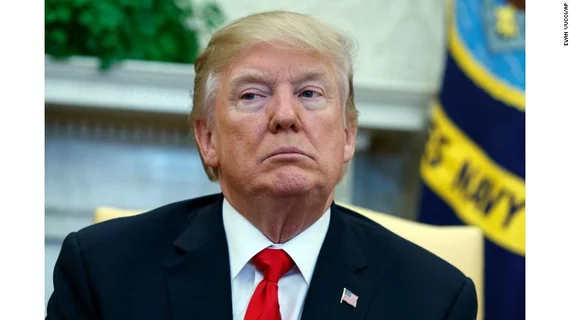Trump’s pharma plan: Raise prices overseas to lower them in US
President Donald Trump is set to deliver a speech on pharmaceutical prices on May 11—but rather than matching his campaign rhetoric saying drug industry is “getting away with murder,” he’s expected to be cheered by pharma companies for calling for foreign countries to pay more for drugs, rather than bring down prices in the U.S.
This would match a priority from HHS Secretary Alex Azar, a former pharma executive with Eli Lilly, who has told Congress he’s against importing pharmaceuticals from more heavily-regulated countries where prices are lower or allowing Medicare Part D to negotiate prices in the U.S. Ahead of Trump’s speech, Azar told the American Hospital Association that the administration “believes it is a top priority to build a system that puts American patients first.”
“HHS is focused on solving a number of the problems that plague drug markets,” Azar said. “These include the high list prices set by manufacturers; seniors and government programs overpaying for drugs due to lack of the latest negotiating tools; rising out-of-pocket costs for consumers; and foreign governments free-riding off of American investment in innovation.”
The proposal was foreshadowed by a report released in February by the White House Council of Economic Advisers. It argued the rest of the world, particularly other high-income countries, are enjoying “bargain prices” based on pharmaceutical innovation conducted and financed in the U.S.
The report used the same language as Azar, accusing other countries of “free-riding.” In order to avoid “curtailing innovation” by only lowering drug prices in the U.S., the report said the federal government need to simultaneously address overpricing at home and underpricing abroad.
“If the United States had adopted the centralized drug pricing policy in other developed nations twenty years ago, then the world may not have highly valuable treatments for diseases that required significant investment,” the report said. The United States could take actions that change the incentives for these countries to price drugs at levels that appropriately reward innovation, rather than disproportionately putting that burden on American patients and taxpayers.”
Drug lobby group PhRMA applauded the focus on trade policy, but the report’s conclusions were found to be highly questionable by Memorial Sloan Kettering Cancer Center researchers. In a study published in the blog of Health Affairs, they compared 15 major drug manufacturers’ excess revenue generated by higher U.S. prices compared to their total spending on research and development.
Drug companies earned $116 billion by U.S. net prices exceeding other countries’ list prices in 2015, researchers found. In the same year, the same companies’ global R&D spending was $76 billion.
“This finding counters the claim that the higher prices paid by U.S. patients and taxpayers are necessary to fund research and development,” they wrote. “Rather, there are billions of dollars left over even after worldwide research budgets are covered.”
Overseas experts see the push to raise their drug prices as Trump advancing the goals of the pharma industry. The Global Health Centre’s Suerie Moon, MPA, PhD, told Politico she’s heard pharmaceutical lobbyists argue for European countries to pay more, but “rarely heard companies argue if Europe paid more, the U.S. pays less.”

